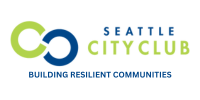Reposted from King County Sexual Assault Resource Center, written by Mary Ellen Stone, Executive Director
Ten years ago, #MeToo was developed by Tarana Burke to empower young women of color who had been sexually assaulted. Relatively few people had heard of the #MeToo movement until two weeks ago when the news about Harvey Weinstein exploded in the media.
By now, we have all read the stories and the texts. We’ve heard famous and not-so-famous women share their experiences of men harassing, abusing, and assaulting them at work, at home, on public transportation, and in every space of their lives.
People are asking men, “Why didn’t you say anything?” People are making pledges to support survivors and talking about criminal charges for some offenders.
Here at KCSARC, our 24-Hour Resource Line experienced a 44% increase in calls over this same period last year, an experience reported by other similar organizations across the country. Our supporters are reaching out. We received a donation with the message, “You helped two of my friends… that I know of.” #MeToo echoes our rallying cry of BE LOUD.
Is #MeToo enough to make lasting change? Will this campaign go the way of 2014’s #YesEveryWoman? #MeToo is remarkable and empowering. Putting faces on what women and girls experience every day makes it impossible to pretend that sexual assault and harassment doesn’t happen. All those who signed on to #MeToo are helping to change the conversation.
But ending sexual violence begins with awareness.
Ending sexual violence continues with survivor-centered policies, laws, and practices. Ending sexual violence requires your willingness to keep speaking out. It requires your continued advocacy. Your vote. Your donations. Your volunteer hours, and your action.
Three ways you can take the energy generated by #MeToo to create lasting change for survivors:
- Advocate for changes to policies, laws, and practices that hold offenders accountable. We need to support and believe those who’ve experienced sexual violence, and we need to hold those who abuse accountable. Those who assault or harass others must know their actions are not acceptable and there will be repercussions. If charges are filed, offenders should be charged to the full extent that the law allows, and not be allowed to plead to much lesser charges as is so often the case.
- Join KCSARC in our work to make Washington State laws more just. Laws need to work for survivors, not present more roadblocks to justice. That was the point of our work to change the Sexual Assault Protection Order during the 2017 legislative session. Washington has been a leader in public policies, but we can learn from other states. For instance, several states have a more expansive statute of limitations for reporting sexual assaults and are worth exploring. We’ll count on you to join us when we go back to Olympia this session with a refreshed list of ways to support survivors.
- Support state, county, and city funding for organizations that serve survivors. Organizations like KCSARC must be fully funded so that services are available when more individuals do come forward, as we want them to do. Locally, we are seeing this in action—and you have an opportunity to ensure it continues. We applaud Seattle Mayor Burgess and the Seattle City Council for supporting significant initiatives for sexual assault and domestic violence organizations. We’re hoping voters will approve Prop. 1 on King County ballots now, providing additional support for sexual assault services.
Thank you for continuing to BE LOUD with #MeToo. We see you—and we believe you. As always, we’re here, 24/7, if you ever need help: 888.99.VOICE.
